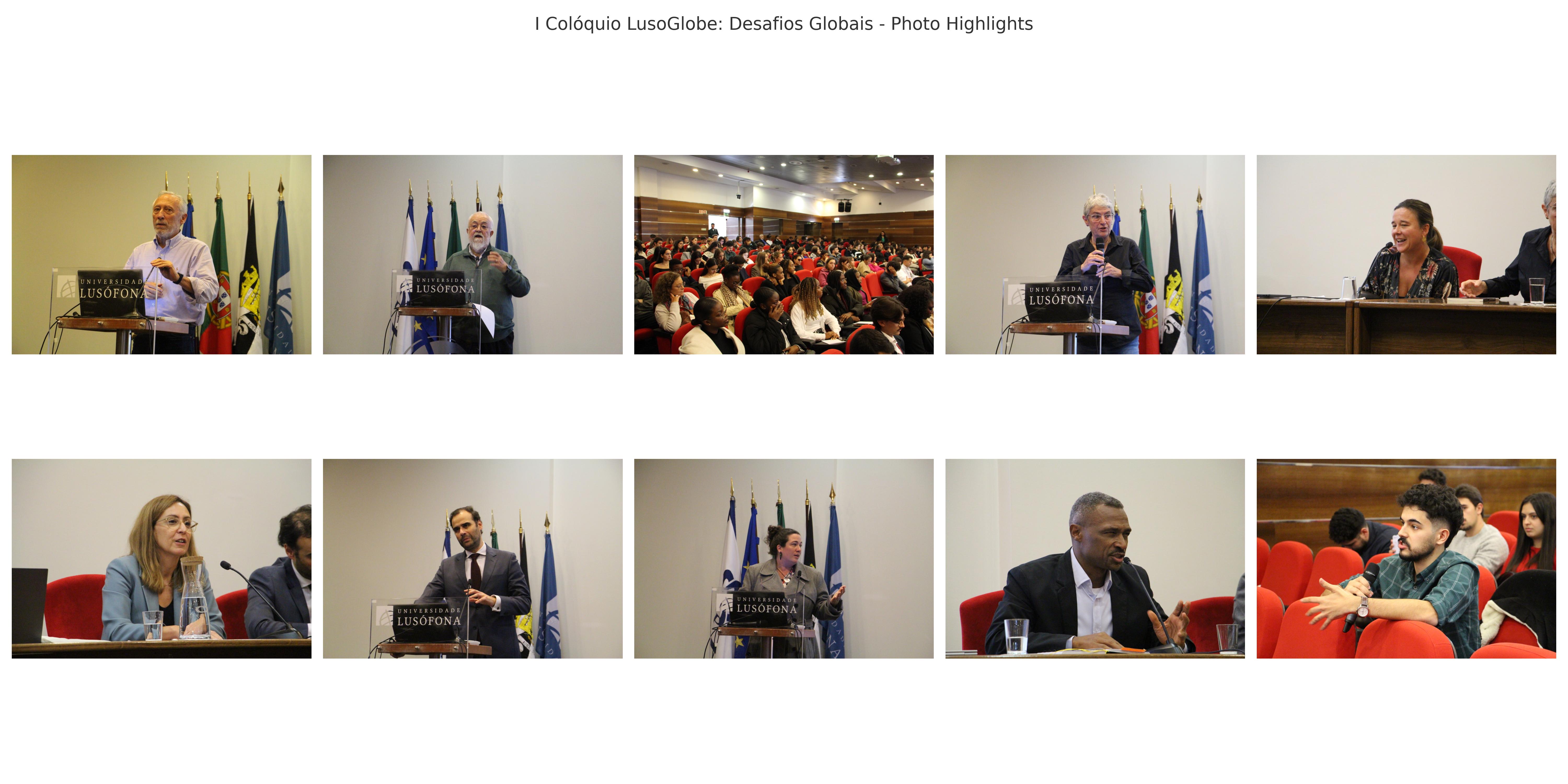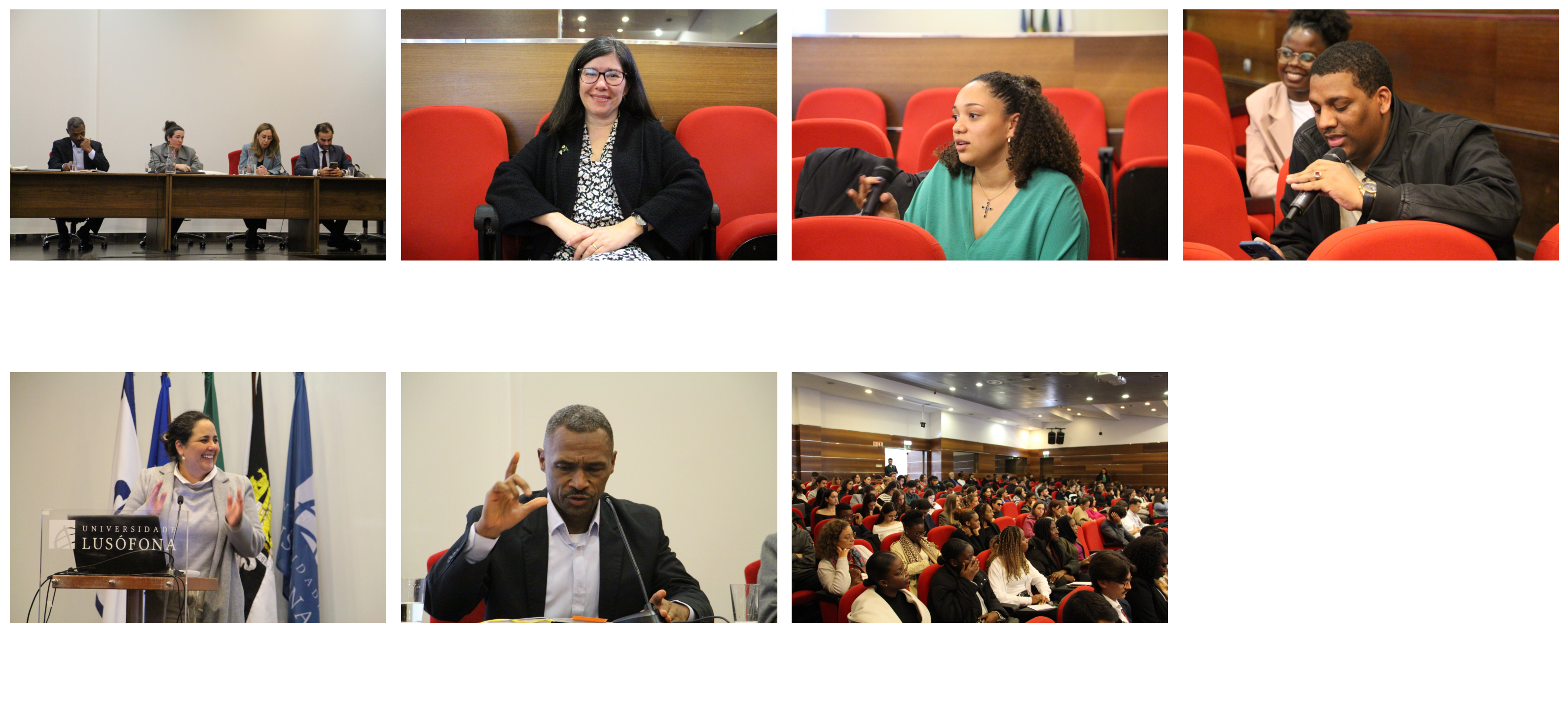
Lisbon, November 20, 2024 – LusoGlobe hosted its inaugural colloquium on Global Challenges, which brought together a diverse range of experts to engage with some of the most pressing issues of our time. Held at the Agostinho da Silva Auditorium at Universidade Lusófona, the event served as a platform for critical reflections on globalization, human rights, political extremism, and terrorism.
The colloquium opened with a welcome address by António Costa Pinto, setting the stage for a day of thought-provoking dialogue. His remarks underscored the importance of interdisciplinary research and dialogue in addressing today’s interconnected global crises.
The first panel, "Globalization, Citizenship, and Human Rights," began with a presentation by Ana Luiza da Gama e Souza of Federal Fluminense University. Drawing on her extensive research in human rights and global corporate practices, Ana Luiza unpacked the troubling dynamics of the agricultural industry. She highlighted the environmental and human costs of pesticide use, particularly in Brazil, and delved into the emerging influence of Chinese governance in this sector. Adding a philosophical and sociological lens, Hermano Carmo (ISSP) addressed the evolution of citizenship in the age of globalization. He illuminated how the layered nature of citizenship—spanning local, national, and global dimensions—has grown increasingly complex. Hermano emphasized the urgent need for socially responsible citizenship as a foundation for a more equitable and sustainable global society. His reflections tied together the theoretical and practical challenges of reconciling individual rights with collective responsibilities in a rapidly changing world. Moderated by Teresa Nogueira Pinto, the panel revealed the global implications of these practices and the challenges of aligning institutional behavior with human rights standards.
The second panel, "Political Extremism and Contemporary Terrorism: The Challenges of Polarization," shifted the focus to the rising political instability and violence threats. Moderated by Sílvia Mangerona, the session featured experts examining the roots and ramifications of extremism in today’s polarized societies. Lara Denise Goes da Costa, representing Brazil’s Ministry of Defense, opened the discussion with a geopolitical perspective on polarization, exploring how state and non-state actors have exacerbated divisions within and across nations. Her insights provided a vivid picture of governments' challenges in managing these growing tensions. Next, Filipe Pathé Duarte (Nova School of Law) clarified the debate by distinguishing between radicalization, extremism, and terrorism. Filipe emphasized the need for policymakers and educators to address the underlying societal fractures that fuel these phenomena, providing practical recommendations for creating more resilient communities. João Resende-Santos (Bentley University) concluded the panel by examining the global dimensions of extremism and the critical role of international cooperation. João’s analysis underscored the importance of building transnational frameworks to counteract the spread of extremist ideologies and their impact on global security.
As closing remarks, Sabrina Medeiros reflected on the central themes of the colloquium, highlighting the interconnectedness of the issues discussed. She stressed the importance of fostering collaboration between academia, government, and civil society to develop sustainable solutions to the world’s most urgent challenges.
The First LusoGlobe Colloquium, organized by the event committee formed by Helia Bracons, Silvia Mangerona, and Teresa Nogueira Pinto, was a milestone event showcasing the critical role of interdisciplinary and collaborative approaches in addressing global challenges.


